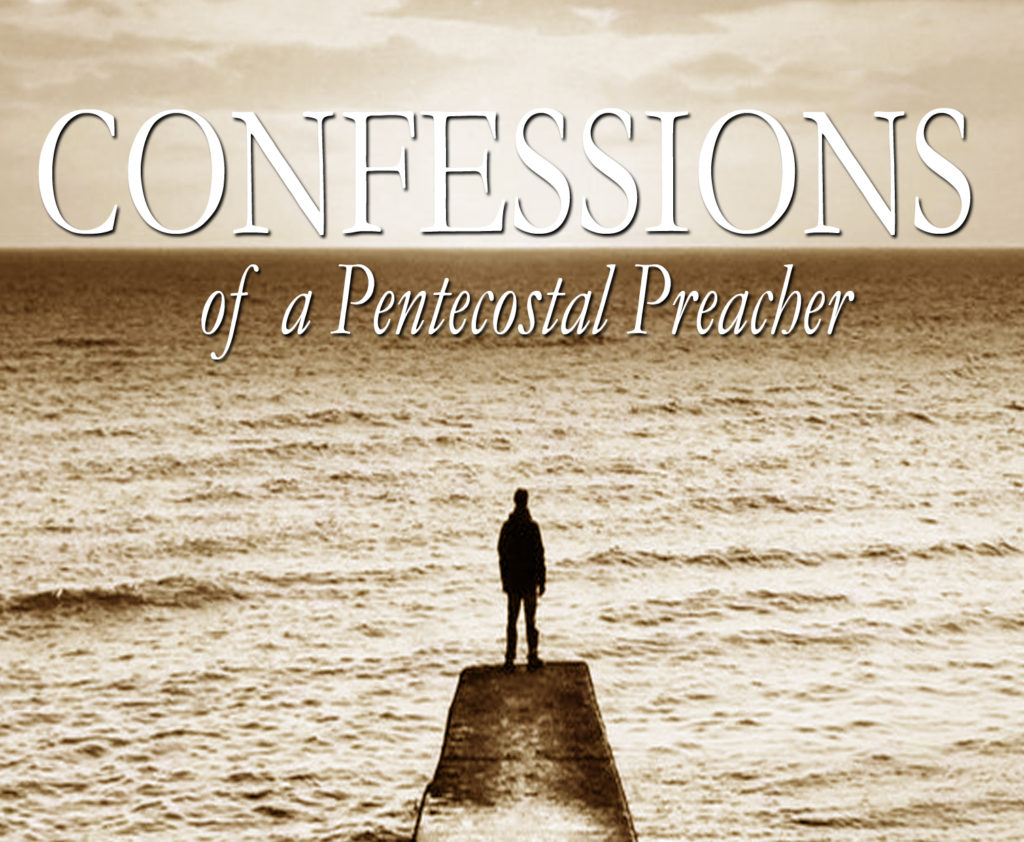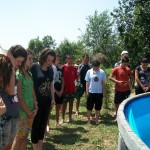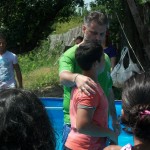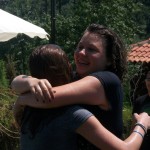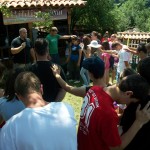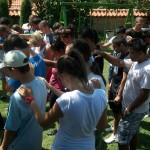SIGNS of the LAST DAYS: Good called evil and evil good

I was called … Celebrating 30 Years of Global Ministry
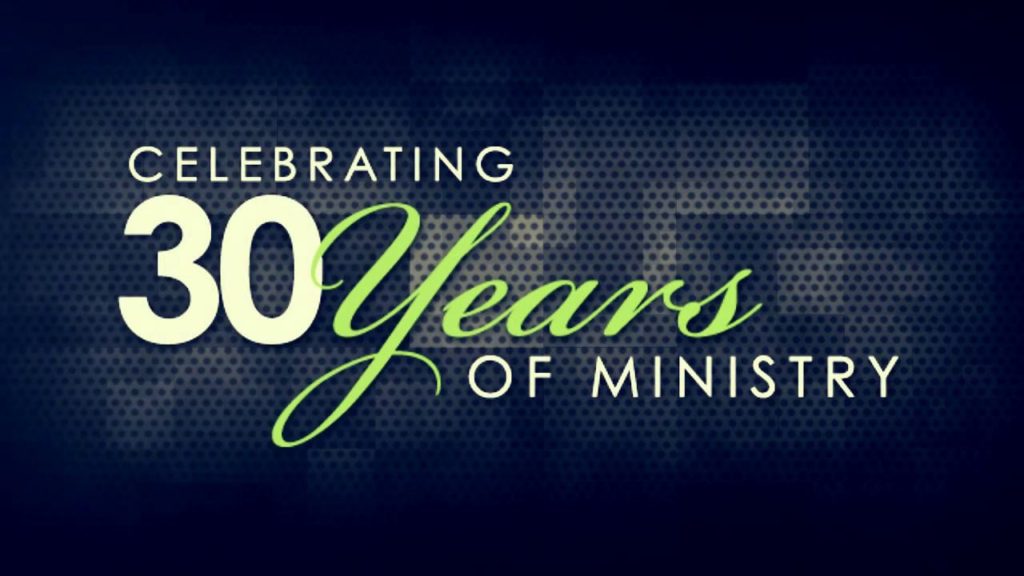
During the month of September, our ministry is celebrating 30 years in Global Harvest. I was saved in my hometown of Yambol Bulgaria on August 9, 1990 and baptized with the Holy Spirit seven days later. In two weeks time, God called me to preach and I preached my first sermon one Friday night in September at the Church of God in the mountain town of Pravetz, Bulgaria where a small group of Pentecostal believers had kept the faith during the long years of the Communist Regime. At that time, Pravetz was known as a stronghold of Communism where the Communist president who ruled Bulgaria for 36 years was born. Many, including school officials, did not receive our faith and openly tried to suppress its expression. All night prayer meetings were a weekly event, and chain fasting almost never stopped. The Bulgarian Church of God was still underground.
Only 14 were present at the meeting as I preached from Genesis chapter 14. Little I knew that just a few short months later, the youth group of the church would count over 100 strong and growing, and with the Berlin Wall now fallen revival was on the way. That night in Pravetz Bulgaria I just preached a sermon from the Word. That same Word, which God still claims cannot return void. For Revival must go on …
Now 30 years later, the time to tell the story has finally come!
This book should have been published seven years ago in 2013. Its original subtitle was going to read “7 Years in Bulgaria.” Instead, it took seven years to finish it with all documents, research archives and new cases. Now, it is finally here and it finally reads like a story – not just choppy interviews, deposition documented testimonies or court records, but a story of struggle, strength and solitude. A story of life and a story of us.
1995-96 The establishing of the first Bulgarian Church of God in Chicago and its first split
2000-01 The contracted building of the ministry center for the Central Church of God in Sofia
2002-03 The church split in Southaven and what followed next
2005-06 The post-communist split of the Bulgarian Church of God and consecutive sub-denominations
2010-13 The social media network that cost us millions (of souls)
2016 The vote that forced to kill a church
2019-20 The sale of the ministry center for the Central Church of God in Bulgaria
READ: CONFESSIONS of a Pentecostal Preacher
Called & Empowered
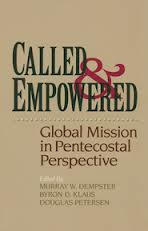 Called & Empowered is a collection of essays that addresses a number of critical post-modern issues. The main purpose of the book is to introduce and answer problematic questions related to church and culture. A great addition is the compilation of in-depth cultural studies and recent theological developments viewed in Christian context. What made the book interesting for me personally was the presence of a number of well-balanced critical perspectives which were presented from different viewpoints. Because they were combined with different cultural factors, they were helpful in understanding the Global Mission of Pentecostalism. The supportive evidence focused on the Kingdom, culture, social formation and unity.
Called & Empowered is a collection of essays that addresses a number of critical post-modern issues. The main purpose of the book is to introduce and answer problematic questions related to church and culture. A great addition is the compilation of in-depth cultural studies and recent theological developments viewed in Christian context. What made the book interesting for me personally was the presence of a number of well-balanced critical perspectives which were presented from different viewpoints. Because they were combined with different cultural factors, they were helpful in understanding the Global Mission of Pentecostalism. The supportive evidence focused on the Kingdom, culture, social formation and unity.
On the Kingdom of God
During the latter part of the twentieth century, the doctrine of the Kingdom of God was of great concern for many theologians and missiologists. In my short educational experience, I have been introduced to a number of works on the subject, some of which were quite controversial. However, it has been interesting to read about the Kingdom strategy of Jesus, along with the development of the Kingdom theology in the context of third world praxis. It seems that in both cases, it is reasonable to accept the fact that since the Kingdom of God was a prime concern in the ministry of Jesus, as well as in the ministry of John the Baptist and the apostles, it should carry the same importance in our Christian life and activities. Unfortunately, this may not be the observed reality in Christianity today. However, traditionally and historically, Pentecostal Christians have always focused on the Kingdom of God. A very particular example in this case is the already-not-yet proposal, which is directly associated with Kingdom theology.
On Gospel and Culture
This particular division in Called and Empowered has a very important discussion on the urbanization of the Pentecostal mission. Historically, Pentecostal revivals do not begin in huge urban centers and do not focus or attract them. It seems that such revivals occur mainly among people who are neither highly educated, nor economically prosperous. Also they do not occupy a high rank in the social hierarchy. It is only after they have had a period of successful existence as aggressively growing religious organizations that the Pentecostal Churches and ministries start aiming at the great cultural, economical and political urban centers. Such progressive development is evident in the Bible. Undeniably, the first move of the Holy Spirit in Acts 2 was among uneducated people such as fishermen and tax collectors. Similar concern was expressed by Gentiles present in Jerusalem on the day of Pentecost. Nevertheless, shortly thereafter the Gospel was preached before kings, politicians, governors and military leaders. Therefore, what Pentecostalism rediscovers today is not a new blending of culture and Gospel, but rather a reclamation of the continuity of historical inheritance.
On Pentecostal Response to Marxism
A very good point was made by Dr. Kuzmic in his exposition on Marxism in relation to the existence of Pentecostalism. It is always quite disturbing when a parallel between Marx’s socialism and Christianity is being made. In Eastern Europe however, this idea is not as neoteric as proposed by some Western writers. In the early twentieth century Nikolay Berdyaev, one of the most prominent socialist writers, introduced what is considered probably the first comparison between Christianity and Marxism. The similarities are many: common wealth, economical and social balance, peace, brotherhood, ect. Also, communism in many ways imitates Christianity. Good examples are the establishment of the social and economical infrastructure of cultural communes, work unions and agricultural cooperatives which have common assets. A similar example is the almost “religious” dedication required by the Communist Party.
What is missed, however, is the simple fact that Marxism, different from Christianity, lacks God. As Dr. Kuzmic points out, Marx hated all gods, including Christ. Therefore, there is no room for comparison. If Communism is Christianity without Christ, it then stands far away from the whole idea of the existence of Christianity. This was shown through the enormous failure of communism in Eastern Europe. Since Dr. Kuzmic has personally experienced all of the above, his exposition on Marxism in relation to Pentecostalism assesses the true danger of such a parallel.
On Ecumenism and Pentecostal Mission
The last evidence is drawn from the discussion on Ecumenical Mission offered in Called & Empowered and my long-term relationship with the World Council of Churches. The World Council of Churches is one of the numerous organizations which promote worldwide Christian unity through reconciliation, theological dialogue, sharing of resources and the vision of a community life rooted in a particular cultural context.
The vision of the World Council of Churches is based on the common Christian mission of introducing Christ and Christianity to the world. I am persuaded that the future of World Missions is for Christians uniting with a common purpose for our Christian mission. Undoubtedly, such process will take time and mutual efforts. I am reminded of this as I observe my home country, Bulgaria where Protestant Christians are divided against one another and unity is lacking. Unified missions will not only bring oneness and harmony back into the church, but it will formulate the ecclesiastical community after the image of the Early Church from the Book of Acts. The results from such a unified mission will not only be world changing, but self-changing as well.
Mission Applications
The following part of this overview will include a mission application response to the evidences listed above. As it focuses on the Eastern European context, it will further suggest mission applications in the present Protestant reality in the region, and more specifically among the Bulgarian Pentecostals. The above four evidence accents were chosen among others because they all pertain to today’s Bulgarian Protestant reality. The kingdom of God as both present reality and eschatological hope takes a bit different perspective in a society where forty five years of Communist regime has left a deep scar on people’s mentality. Healing for the emotional and social wounds has not been provided by rapidly changing governments and political models, crime has increased, severe economical crises have occupied and there remains a constant fear and lack of hope for the future. In such context, the Kingdom of God is much more than a present reality or a future hope. It is all that the Protestant church in Bulgaria really has.
Gospel and culture are an essential part of Bulgarian missions work. On the Balkan Peninsula where Bulgaria is located, there are more than 150 languages and dialects spoken. Adding the crossroads of three world religions, three continents and constant migration of people that has been going on for thousands of years, makes this Europe’s melting pot of cultures and ethnoses. Discovering a paradigm which will serve as a buffer between the ever-changing Balkan culture and the eternal Gospel will be the ever-present factor that determines the success of Protestantism on the Balkans.
In Eastern European cultural and social context, the mentioning of Communism indeed has a different meaning. The Pentecostal church in Bulgaria historically and ideologically has opposed Communism in every form, and thus Pentecostal Christianity in Bulgaria must differentiate from Communism in order to remain in its historical distinctives. In order to be successful in its mission and message, and at the same time remain within its original identity, the Bulgarian Protestant movement must continue to oppose Communism in all of its forms.
The final evidence of ecumenism must be understood in Eastern European settings not only as an ecumenical cooperation of different religious formations, but as a union between all existing Protestant groups. As costly as such idea may seem, it will strengthen Eastern European Protestantism. Historically, in Bulgaria an organization called Bulgarian Evangelical Alliance (United Evangelical Churches) has served such purpose by preserving the identity of the denominations members. Such unity of cooperation must continue in even more strategic and planned ways in order to provide Bulgarians with the proper social context for national Protestant reformation and revival.
BC/AD 2011 (Bible Camp/All Denominations) in Bulgaria – A New Generation Called to the Presence of God
In order to provide spiritual upbringing for the young ministers, each day followed a carefully prepared schedule beginning with prayer at 6:00am. Dr. Dony Donev delivered the morning messages at 10:00am which continued with a personal time of prayer and reflection. Every afternoon at 4:00pm the youth broke into small groups on the topics of preaching, prayer and fasting, leading worship and healing and deliverance. Missionary Ivo Shatrovsky who has been a guest speaker at previous meetings held a group on Tuesday and spoke about foreign missions. Regional Bishop Vassil Petrov of the Gabrovo Church of God led a study group on the subject of Spiritual Ministry through Healing and Deliverance, Pastor Anton Penev of Reformation Church in Haskovo taught on prayer and praise, while Dr. Dony Donev lectured on preaching and teaching from the Word of God.
During our morning fellowship after prayer, the youth shared their unique calling for the ministry. Some where called to be worship leaders, others to be preachers, several even had a prophetic calling upon their lives and three shared their calling to missions in the Middle East. One of them received a confirmation during the camp that she was accepted to an Arab language studies program at the Bulgarian University of Velik Tarnovo, where she would receive further preparation for her calling.
On Wednesday afternoon six young ministers from our group displayed the results of their week of training and delivered a sermonet on Psalms 23. It was encouraging to see the dedication of these young men and women as throughout the day you would see them reading their Bibles in preparation and hear their prayers coming from unknown places.
A water baptism service was held at 2:00pm on Wednesday where after receiving instruction, 17 were baptized while all sang a Bulgarian hymn with the words “Come to the river with waters of life…”
The water baptism and all other results from the camp came with a direct testimony of experiencing the Glory of the Lord on the mountain. During the alter call following the service on Tuesday night in particular, the presence of God was so evident and powerful that prayers continued long after closing into the night. It was a moment like we have never seen before in our ministry of 21 years. This is a report which is not given lightly and was confirmed by various testimonies. A few follow:
“It has been a long time since I have witnessed a time like this and have felt God’s Glory so powerfully.” ~ Young minister from Haskovo
“From small to large were all one, and Jesus himself was among us. I personally am encouraged by this camp.”~ Regional Bishop Vassil Petrov of the Gabrovo Church of God
“I have never in my life experienced the presence of God so powerfully” ~ Panayot Budinov, Youth Pastor from the Assemblies of God Church in Yambol
“I am certain that the Word that was delivered at this camp will have global results”~ Young person with a Calling for Missions
“Mightily blessed! Outpouring of the Holy Spirit! Prayer, worship and anointing! Baptisms in the Holy Spirit and 17 water baptisms! What else could be said?” ~Pastor Anton Penev
We are waiting and believe that we will continue to receive praise reports from miracles and transformations that happened as a result of Bible Camp 2011. We thank all of those who made this camp a success and as always extend a special thanks to the Eco Complex Katunishte for graciously hosting our event and allowing us to use their facilities.
ALL ABOUT BIBLE CAMP 2011 BULGARIA:
BC/AD 2011 (Bible Camp/All Denominations) in Bulgaria – A Vision of Purpose
BC/AD 2011 (Bible Camp/All Denominations) – God’s Favor Realized
BC/AD 2011 (Bible Camp/All Denominations) in Bulgaria – A New Paradigm for Ministry in the Spirit
Bulgarian Pentecostals Called to Fast
The national leadership of the Bulgarian Pentecostal churches announced national days for fasting and prayer. The announcement includes chain fasting and a night of prayer in the local churches, as well as a national prayer and fasting event for pastors which will take place in November, 2003. It purposes empowering of a new spiritual vision for ministry. The prayer requests include:
1. Spiritual renewal of believers and churches.
2. Infilling with the Spirit for ministry through the spiritual gifts.
3. Positive church influence among the Bulgarian community.
4. Spiritual and financial prosperity for the churches.
5. All elected in leadership in the church and the nation.
6. Successful mission work according to the Great Commission (Mt. 28:19-20).
7. Anointing in the evangelism and preaching, confirmed by spiritual fruits, new converts and supernatural signs and wonders.


